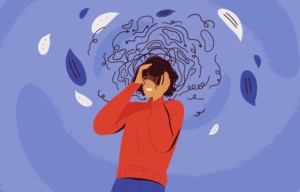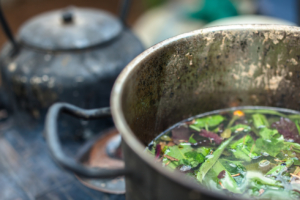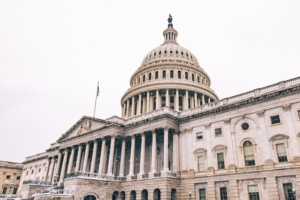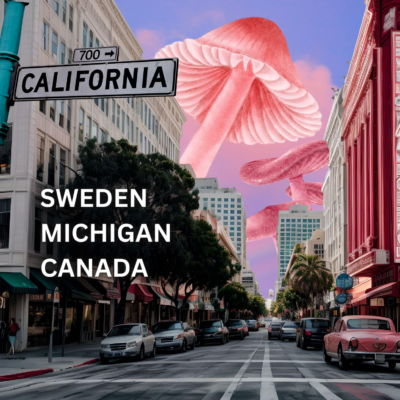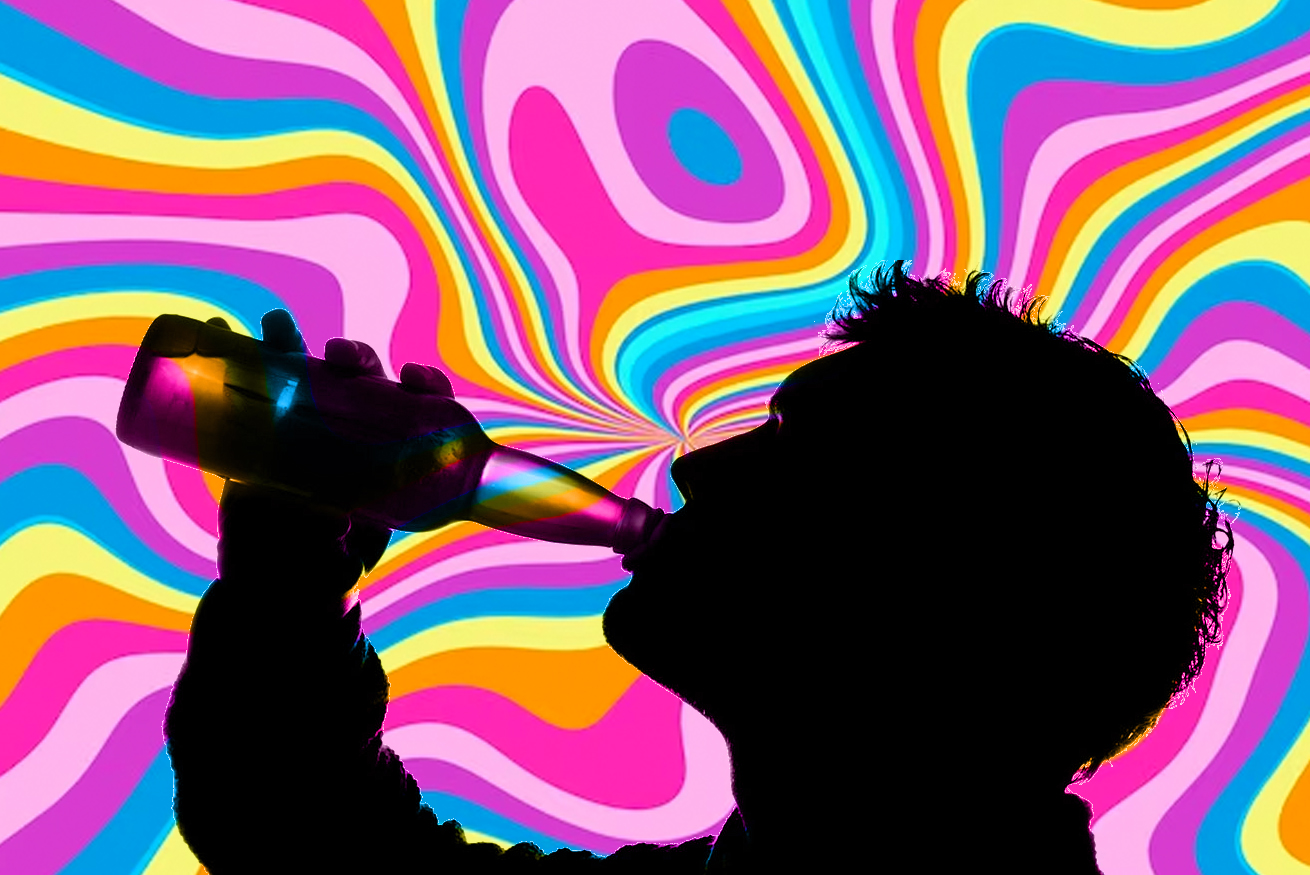
In the world of psychedelic research and development, there are so many benefits being studied and discussed that it can be hard to keep up! But one of the most promising and currently studied boons from psychedelics is their potential to treat alcohol use disorder (AUD), with many users reporting these effects both anecdotally and in clinical studies.
As an amateur mycologist who regularly attends forays with my state’s local mycological association, I’ve naturally had conversations regarding psilocybin “magic mushrooms” and the lasting benefits people have told me about firsthand. On more than one occasion, I was fascinated to learn from individuals that they had cut back on their drinking (some entirely, some still drinking, albeit more moderately) as a result of their psilocybin journeys. Upon researching the subject further, I was fascinated to learn about the studies being conducted on the subject of psychedelics and alcohol use disorder.
Psychedelics For the Treatment of Alcohol Use Disorder
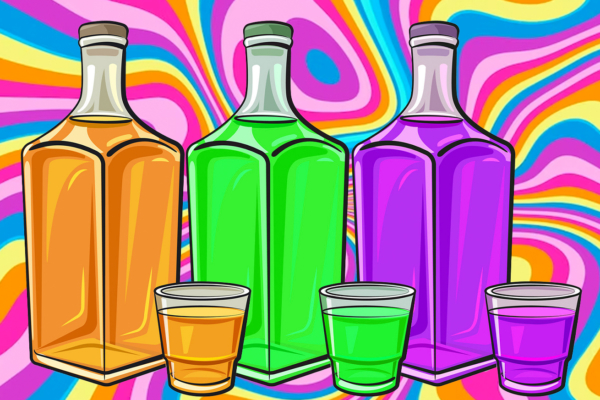
The two psychedelics I will be focusing on which are documented to help treat alcohol use disorder are both classic psychedelics, psilocybin mushrooms and LSD (lysergic acid diethylamide). Initially, I set out to write this article with a sole focus on psilocybin mushrooms, specifically the results of the recently published study conducted by NYU Langone Center for Psychedelic Medicine at NYU Langone Health, led by Michael Bogenshulz and his colleagues. The study, which was published in August 2022 in the Journal of the American Medical Association, was the first of its kind to document a randomized study on the effects of psilocybin mushrooms on alcohol use disorder. The study found that 14 months after being given magic mushrooms, study participants had reduced their percentage of heavy drinking days (PHDD) by 50% compared to the placebo group. All in all, 80% of the study participants in the psilocybin group had reduced their drinking more than a year after taking the mushrooms, and half of them had quit drinking entirely.
But what I found was that the AUD psilocybin research happening today was to a certain extent the other side of one same coin, a continuation and reinforcement of the LSD research which had taken place during the 1950s and into the 1960s before the prohibition of LSD in 1966. It seems psilocybin is certainly not the only substance to be taken into consideration when asking whether or not psychedelics can help curb alcohol use disorder. In a 2012 pooled analysis of six randomized controlled clinical trials from the early psychedelic research era, a single dose of LSD was found to have delivered significant beneficial effects on alcohol misuse upon follow-up assessment, which took place from 1 to 12 months after each subject’s LSD experience. The analysis also seemed to suggest that the drug’s effectiveness at curbing alcohol use disorder waned after about a year, but no studies have been conducted as to whether or not a follow-up treatment could potentiate the benefits.
The results of that era’s research were so promising that even recovery programs such as Alcoholics Anonymous began to take note of the benefits of LSD curbing alcohol use disorder. Bill Wilson, the founder of AA, famously experimented with LSD himself in the 1950s in a clinical setting (and possibly in private, as well). He was administered LSD for the first time on August 29, 1956 at the Veterans Administration hospital in Los Angeles, California by Dr. Sidney Cohen, alongside the friend and spiritual mentor who had first made Bill aware of LSD, Gerald Heard. Bill was enthusiastic about his experience with LSD, eventually coming to believe that it was among the most significant of his life. Bill Wilson (and by proxy the organization he founded) believed that in order for an alcoholic to stop drinking, a spiritual experience powerful enough to result in a complete psychic change was required. Bill Wilson became of the opinion in the years following his LSD experiments that perhaps LSD could be utilized by AA groups in instances where individuals were otherwise unable to have such a spiritual experience, and that the substance could deliver the insights and mystical profundity to induce such a complete psychic transformation. Wilson wrote: “The vision and insights given by LSD could create a large incentive [to stop drinking]– at least in a considerable number of people.”
Unfortunately, due to AA’s recovery model of complete abstinence from all mind-altering substances, Bill Wilson’s use of the new and experimental drug LSD was extremely frowned upon, and in a matter of years he ultimately stepped away from his leadership roles in AA, freeing himself up to live his own life, partly in order to protect Alcoholics Anonymous from any potential fallout regarding his use of the drug. In AA circles, all discussion of Wilson’s LSD use became and still remains essentially taboo, and in many ways this important part of his story has been buried in order to preserve AA’s ethos. Bill Wilson remains a true pioneer, not only for developing a recovery program model that has helped so many alcoholics to recover from the devastating condition, but also as a decades-early proponent of using LSD to treat mental health conditions. As more time passes and more information regarding his LSD experiments and writings on the subject come to light in the public eye, modern history is really only just now becoming aware just to what extent of a mental health pioneer Bill Wilson truly was.
Dr. Matthew Johnson proposed a similar concept regarding the lasting benefits of magic mushrooms, and reported a study analysis demonstrating that the impact of psilocybin mushrooms upon an individual can be profound enough to be categorized as a spiritual experience. In his 2008 study, he and his research team at Johns Hopkins University found that 14 months after taking a high dose of psilocybin, 58% of the surveyed participants met the criteria for having had a “complete” mystical experience. 64% indicated that the experience increased well-being or life satisfaction. And while this study doesn’t refer specifically to whether or not such an experience curbs alcohol use disorder, it is worth nothing that both psilocybin and LSD have been widely documented clinically, anecdotally, and historically as having the power to deliver profound spiritual, personal, and experiential revelations which are impactful enough to permanently change the course of one’s life.
It’s important to mention that the mechanisms by which psilocybin and LSD work to curb alcohol use disorder are not well understood at this time. It is unknown whether these benefits are the result of some kind of neurological reorganization, or what it is exactly that occurs on a physical level to reduce alcohol consumption in some psychedelic users. But what is known is that psilocybin and LSD have the power to deliver such a tremendous level of universal insight into the nature of one’s own inner landscape, and to deliver such an unflinching gaze upon both the brightest and darkest parts of our souls that once someone receives an insight like that, it’s hard to continue living life following the same unhealthy patterns.
This long-term set of behavioral changes following a psychedelic journey is commonly referred to as the “integration” process, and is perhaps the most critical determining factor in predicting a successful long-term outcome following a psychedelic experience. Implementing the necessary life changes based on the insights gained from a psychedelic substance is where the healing magic happens, and having the legal freedom to use psychedelics in a therapeutic, spiritual, or group recovery setting could likely improve the chances of a successful and nurturing integration.
The future of psychedelics like psilocybin mushrooms and LSD in treating alcohol use disorder seems promising. Many studies remain to be conducted, but more and more data is coming in all the time to suggest that psychedelics can indeed help treat alcohol use disorder. This is exciting news in both the mental and medical health fields, as alcohol use disorder remains the fourth leading cause of preventable death in the United States (seventh globally), causing untold strife and illness in those who suffer from it and for their loved ones. Perhaps magic mushrooms and LSD can provide an answer for some of those suffering from alcohol use disorder. The promising results of these studies and the convictions of those who conducted them seem to point to the conclusion that psychedelics are indeed a hopeful development in the treatment of alcohol use disorder.
